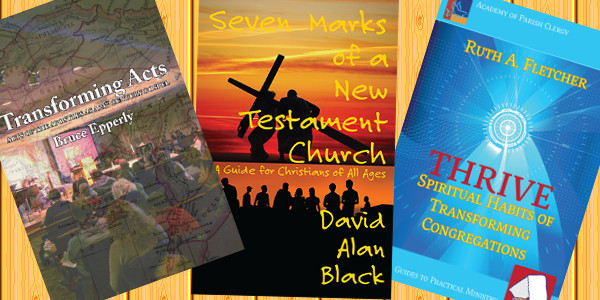Can We Have a Commitment to Biblical Truth?
We now come to the third mark of a New Testament church, and that is its commitment to biblical truth. One of the weakest aspects of Western Christianity is our failure to give proper teaching to new converts. As a result, biblical illiteracy plagues the church in America. This is a weakness in some mainline churches, and often in evangelical churches too. (Seven Marks of a New Testament Church, p. 17)
I discussed this to some extent when I worked through this book, but now I want to place the question before my readers for some discussion. With the wide variety of beliefs that we claim are biblical, one wonders just what biblical truth is and how we discern it. Are all those who disagree not listening to the Holy Spirit? Are they ignorant?
Read my previous post, which also quotes from Transforming Acts: Acts of the Apostles as a 21st Century Gospel and Thrive: Spiritual Habits of Transforming Congregations.







I am all in favour of people reading the Bible. But truth is truth and it requires no adjective.
What does one learn from the Bible if one reads it?
1. That it is very hard work.
2. That the history of the canonical books is complex.
3. That careful people work hard and fail to agree.
4. That we read at first through other people’s lenses – linguistic, cultural, and historical.
5. That knowledge puffs up. And a little knowledge is dangerous.
6. That some of our own motives for reading must be questioned.
I think that anyone who reads faithfully will get around these things, because such a person is open to correction. Point by point:
1. They won’t shy away from the work because of the love of the community they are a part of – if they have loved this text, why? If they have worked this text, so must I.
2. They will study the history of the text and will know the limitations of human language.
3. They will defer some decisions in that they will see the potential for differing opinions.
4. They will learn the languages and not rely on second hand opinions.
5. They will know the building up of love instead of the puffing up of knowledge.
6. They will develop better questions rather than being satisfied with answers.
The above applies across the traditions originating with Abraham. For me, when I have a hard decision related to my reading, I have two appeals to myself to persevere, first to the work that Jesus did for me and for all, and secondly, to the work that the copyists have done in allowing me to see what I have seen so far.
There is truth – but it is not confined to words on a page, even canonical words. It is important that we live in a time when falsehood is raised to the level of news. Truth itself is difficult. We need to be sharpened in our perception.
Perhaps to be positive, I would find truth best expressed in music where the musicians have had to learn to sing and play together. They are those who agree on earth, with respect to rhythm, to blend, to the shape of sound. It is difficult but it is beautiful. The Western traditions of Christendom have set a good example of beauty in music. Learn Byrd, Bach, Beethoven, Brahms, Bartok, Britten, just to try the letter B. The music embedded in the Hebrew Bible has scarcely been explored. There is plenty of faithful work to do here.